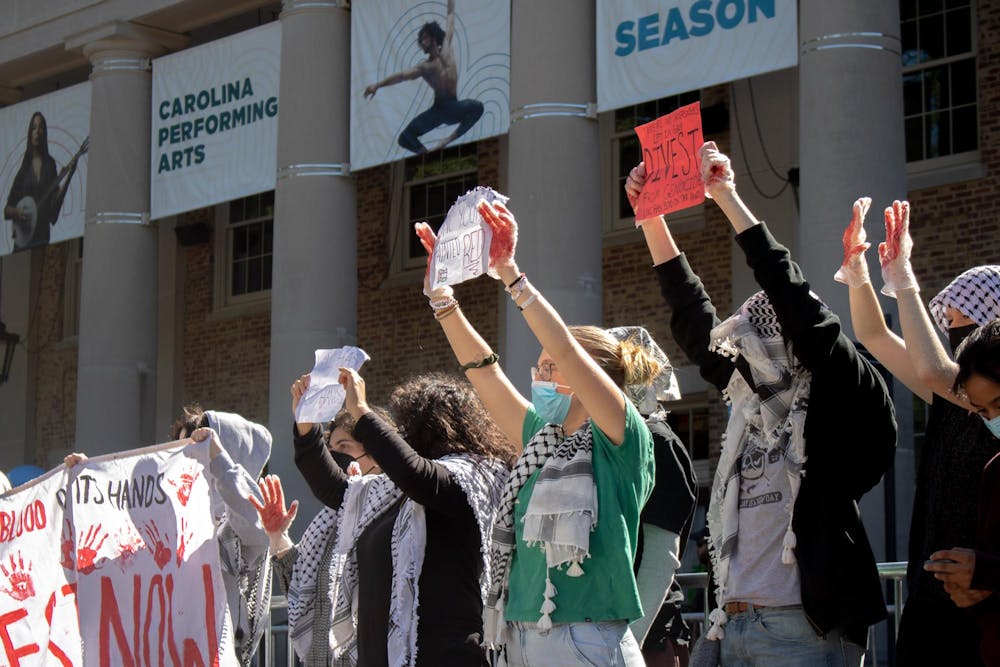Conservatives have long been at war with the university as an institution; it resides in the conservative pundit’s imagination as harbingers of moral decay and loss of values. But most importantly, conservatives attempt to diminish the university's ubiquity in American society because they largely cannot control it, but they sure can try.
Despite a historical precedent for conservative assaults on education, President Donald Trump's administration's attempts to install federal oversight, gut funding and threaten students over pro-Palestinian advocacy are not just concerning infringements from conservatives — they are a canary in the coal mine of American authoritarianism.
This current era of paranoia, surveillance and silencing of left-wing viewpoints harkens back to the Second Red Scare of the 1950s, otherwise known as McCarthyism. It is imperative to recognize its echoes in a not-so-distant past — one where targeting left-wing beliefs led to firings and even the imprisonment of those accused of harboring communist sympathies. Now that universities face accusations of antisemitism and fostering terrorism, the Second Red Scare of the 1950s has transformed into the pro-Palestine scare of today.
In the early 1950s, Sen. Joseph McCarthy gained influence by fueling a climate of fear. His relentless pursuit of Hollywood, the university and everyday Americans — whether actual communists, peace activists or simply progressives — destroyed countless lives. McCarthy became one of the most damaging figures in American history, leaving a legacy that continues to affect the fabric of the nation.
Universities were targeted as hotbeds of communist sympathies. Faculty and staff nationwide faced intense scrutiny from administrators, trustees, Congress and government agencies about their academic work and political involvement. The rallying cry from McCarthy himself was: "One communist on the faculty of one university is one communist too many."
This brings us to our current moment, where professors expressing their views on Gaza face intimidation, retaliation and discipline; university presidents face pressure to renounce pro-Palestinian advocacy out of fear of accusations of antisemitism or for allowing "terrorists" on campus. Further, pro-Palestinian student groups are being terminated and students like Mahmoud Khalil face deportation threats for their advocacy.
Recently, the Trump administration has escalated its campaign against higher education by freezing billions in federal funding to prestigious universities, pressuring them to alter admissions policies and crack down on student protesters. While his administration frames this freeze as a response to alleged antisemitism and civil rights violations, there’s an overt agenda to stifle dissent and control the university — mirroring the intimidation tactics of the McCarthy era.
Some universities are already structurally forever changed; Columbia University recently agreed to Trump administration conditions to begin negotiations to reinstate funding, including implementing a mask ban at protests, appointing the administration’s own senior vice provost for its Middle Eastern, South Asian and African Studies Department, pledging "greater institutional neutrality" and hiring dozens of additional security officers.
However, some universities are finding ways to resist. Harvard has sued the Trump administration to halt the nearly $2 billion funding pause. Meanwhile, faculty across institutions are joining forces against efforts to undermine academic freedom; Rutgers University’s faculty council began a NATO-esque pact among the 18 Big Ten schools to protect academic liberties.




